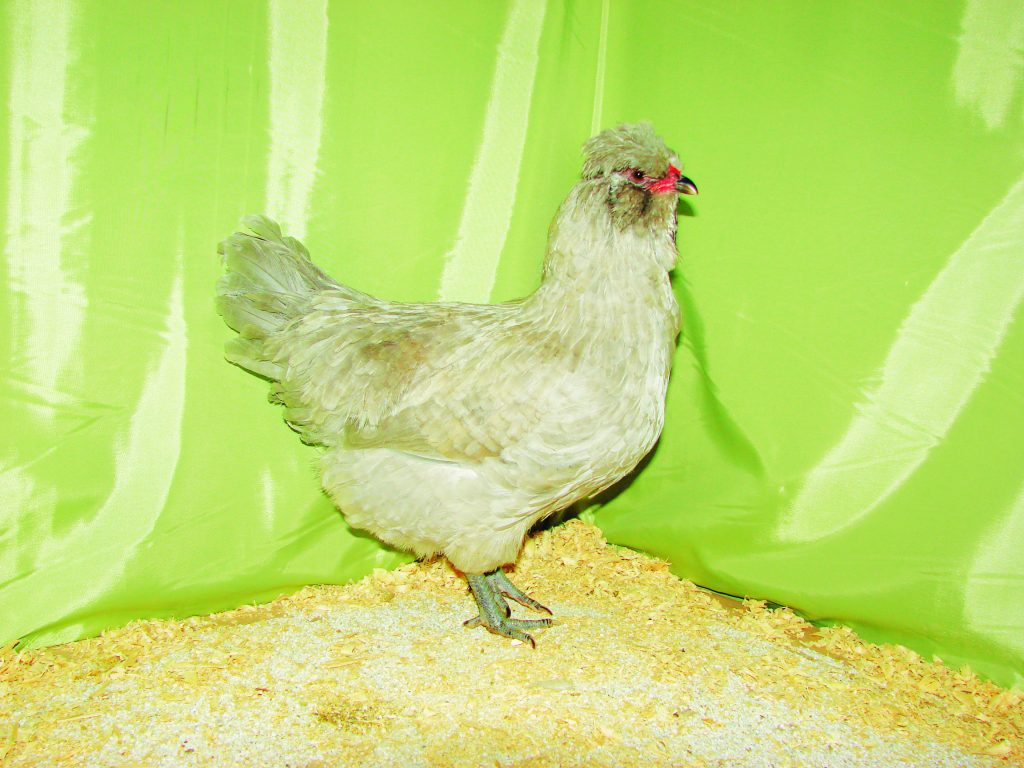Arucana
Araucana
Originating in Chile the Araucana breed is characterised by tufts of feathers growing out on either side of the head like ‘mutton chops’. The Araucana has a Small pea comb, very small bright red wattles and ear lobes. The ancestors of the modern Araucana chicken were purportedly first bred by the Araucanian Indians of Chile – hence the name “Araucana”. The Araucana is a hybrid of two South American breeds: the Collonca (a naturally blue-egg laying, rumpless, clean-faced chicken) and the Quetro (a pinkish-brown egg layer that is tailed and has ear-tufts). The Collonca male and female are very similar, with very few secondary sexual characteristics like comb, wattles or tail coverts to distinguish them. The European equivalent of the North American show standard variety Araucana is what one comes across in South American villages. Quechua and Mapuche do not have tufts and resemble the Ameraucana. The current world wide Araucana Standard (except North America) indicates a medium to large sized chicken with a tail that lays bluish-green eggs. Specific features are feather ear tufts, muffs and beards, with a very much reduced comb, a small feather crest and a complete absence of wattles. The current North American standard calls for a chicken that is rumpless (missing their last vertebrae and lacking a tail), possesses ear-tufts (feathers that grow out from near the birds’ ears), and lays blue eggs. In the United States and Canada, muffs, beards, and tails are all disqualifications.

Large Araucana, Female
Classification
Soft feather-light
Appearance
The Araucana comes in a variety of colours including black, white, lavender to blue-red.
Weight
Large Araucana
| Cock | 2.7 – 3.2 Kg |
| Hen | 2.3 – 2.7 Kg |
Bantam Variety Araucana
| Rooster | 740 – 850 g |
| Hen | 680 – 790 g |
Egg Colour
Blue or green

